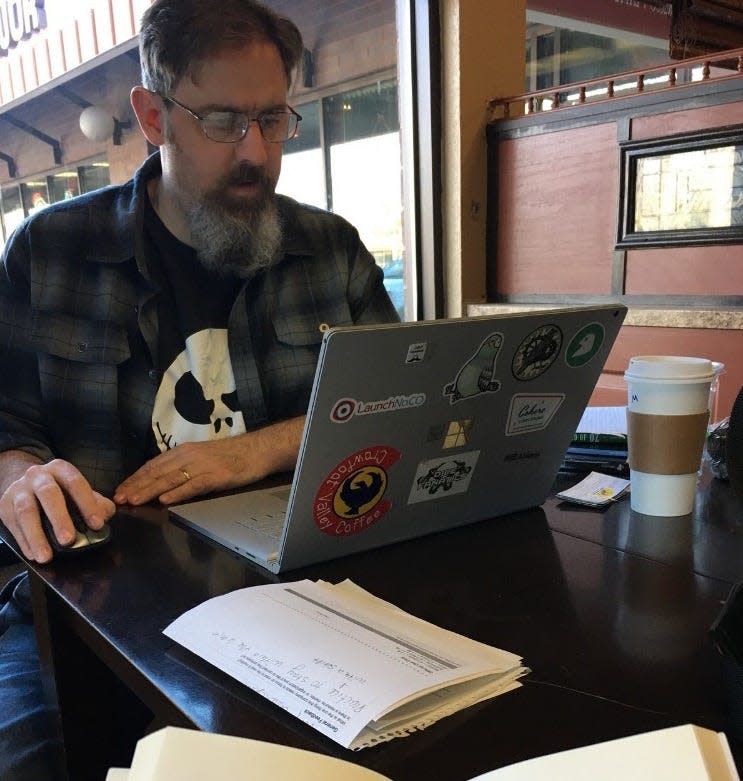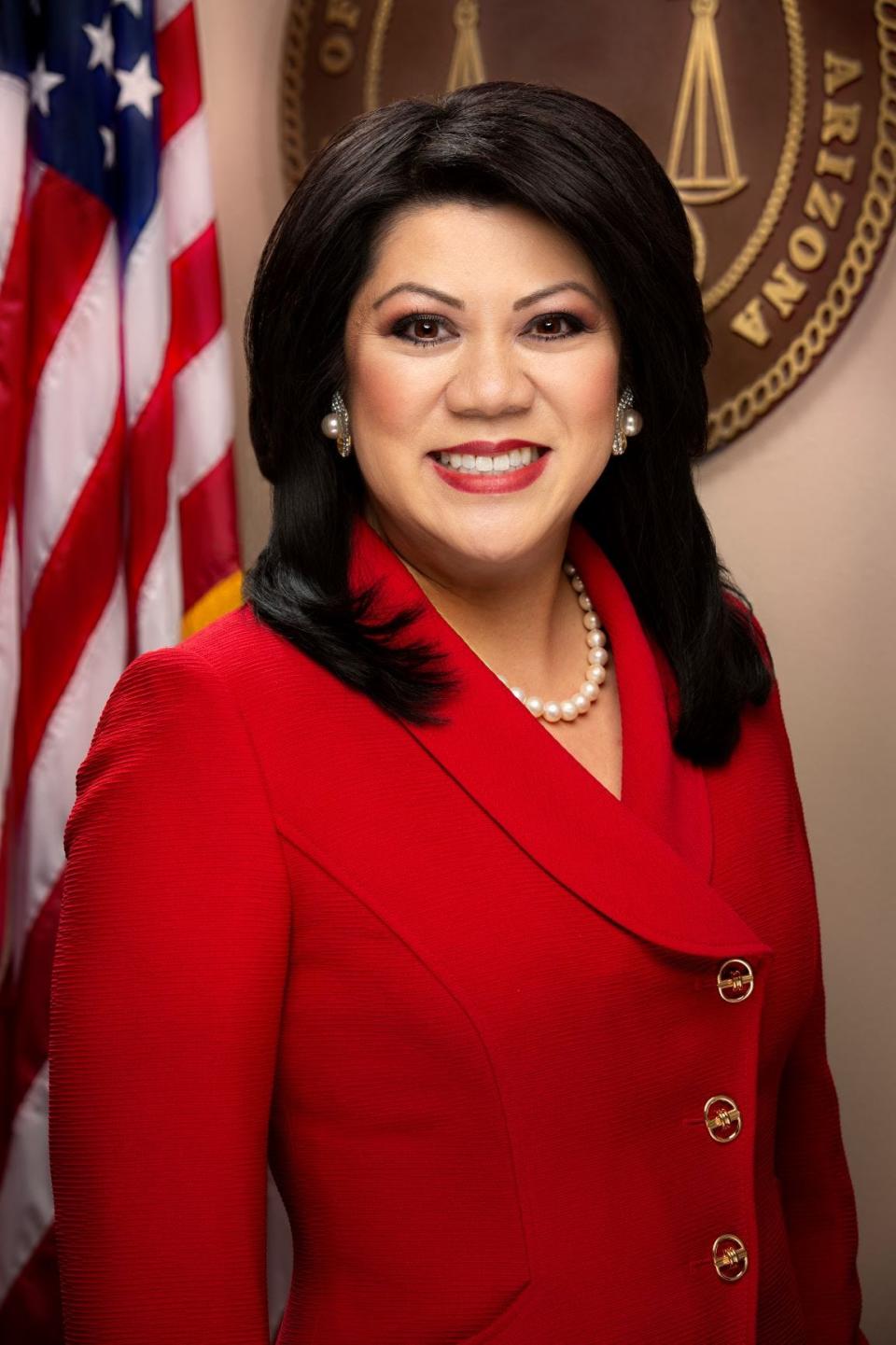Stocks and teens: Are there enough parental controls as teenagers invest with Fidelity, Wells Fargo?

Whitman Ochiai's fascination with money began at an early age.
At 3, he wanted his mom to explain how a debit card worked at the grocery store, and at 10, he asked his parents to help him start investing in the stock market.
Today, the Cornell University-bound student from Great Falls, Virginia, has produced more than 50 podcasts on the basics of finance and socked away thousands of dollars each into an investment account, college fund and Roth IRA. And he's just 18.
He credits his parents – a doctor and public health adviser – for steering him to invest the money he had earned from modeling into mutual funds and exchange-traded funds for long-term investing because he said those investments have less risk.
He also has advice for other teenagers who, it seems, view investing rather than getting a driver's license as the ticket to adulthood.
“It’s absolutely wonderful that young people are getting into investing, but it’s very important for young investors to understand the short term versus long-term investing,” Ochiai said. “A lot of times as you see the expansion of young people investing, there is a feeling that they want to strike it big."
Yet, numerous studies show there's a lack of financial understanding among teenagers even though they control billions of dollars in spending each year, according to research from Carnegie Mellon University in Pittsburgh.
►How good are you with finances?: Take the quiz.
A recent Wells Fargo study of 318 teenagers between 13 and 17 found that nearly half gave themselves a "D" or "F" grade when it came to investment knowledge.
And, the numbers don't improve with age.
A study from the Financial Industry Regulatory Authority, the Congressional approved watchdog of broker-dealers, found that just 39% of those 18 to 19 who owned a taxable investment account in 2018 exhibited high levels of financial literacy. Or, in other words, a good majority of those late teenagers have plenty to learn about finances even though they are investors.
Still, teens are a huge untapped market for investing said James Fielder, an adjunct professor of political science at Colorado State University who has studied Robinhood and other online investing companies.
"I would be surprised if other investment houses leave money on the table," Fielder said.

Venerable trading firm Fidelity is the latest financial company to enter the teen investment arena that includes Wells Fargo, E-Trade, Stockpile and Robinhood.
Fidelity has several thousand new customers since mid-May when the company began offering no-fee saving, spending and investing accounts to 13 to 17-year-olds, said Jennifer Samalis, a senior vice president.
Fidelity claims it's providing the industry's first brokerage account designed for and controlled by teenagers, and Samalis said the launch came after a successful pilot program with its employees.
However, several competitors told USA TODAY that Fidelity's program has raised eyebrows in the banking community as most other institutions only allow custodial accounts for teens that require an adult to execute a trade as a safety measure.
Story continues below.
Samalis said Fidelity's teenage customers are able to develop healthy financial habits, have financial freedom and "enable and foster a conversation" with their parents about money management.
Samalis said while Fidelity gives teens broader control than some competitors by letting the kids control the account and the ability to make trades, Fidelity won't let teens engage in short selling or making trades on penny stocks or options, which are considered risky.
Vineel Bhat, 16, is one of those teens who trade with Fidelity, a brokerage that his father also uses. Bhat opted to use the platform because he couldn’t have his own brokerage account with Robinhood since he’s under 18.
“Based on what I've seen so far, Fidelity is a pretty good broker,” says Bhat. “My custodial account looks very similar to what an adult would have except some things are blocked off like buying options.”
Despite being young, investing isn’t new to him. Bhat, who lives in Sammamish, Washington, began investing early by the urging of his father, who moved to America from India.
“My father came to America with no money and had to learn about investing the hard way when he was young,” says Bhat. “He’s been a big influence.”
When he was 8, he wrote a letter to billionaire investor Warren Buffett in 2014, asking for investing advice. He was thrilled when a representative for Buffett responded and said the key to investing was a good education and creating the right habits.
Since then, he’s been involved in investing and financial literacy education since middle school where he gave free classes at a local library. He also built an iOS app called Invessential to teach people how to open a brokerage account and trade stocks. He also offers online video courses about building wealth through investing.
He’s been urging young investors to put money away for the long haul and avoid risky corners of the market like volatile meme stocks.
“If you don't know what you’re doing, it's very easy to lose money,” says Bhat. “If it sounds too good to be true, it probably is.”

'What if it was all gone?'
While Fidelity puts restrictions on the kinds of trades that teenagers can do, Wells Fargo, E-Trade and Stockpile only allow custodial investment accounts for those under 18.
Some institutions like Bank of America and U.S. Bank have not waded into teen brokerage accounts, saying they currently prefer to offer savings, checking and financial literacy programs for youths.
Wells Fargo employee Roxanne Gray, who lives in Lafayette, California, said she opened trading accounts for her twin boys, Jason and Morrie, last year. She said each one has invested in index funds, growing their accounts by $500 to $700 each, and they will be heading to college this fall. Index funds are mutual funds or ETFs whose holdings imitate those of a designated index, like the S&P 500, aiming to match its performance.
Gray added that one of her sons wanted to invest in bitcoin, but she wouldn't do it because she thought it was too risky.
"He can do it when he's on his own," Gray said. "When you are in the custodial seat, you make help them make the decisions."
Kathleen Malone, a private wealth financial adviser for Wells Fargo Advisors, said parents need to explain to their children that they could lose all of their money if investments go bad.
"You need to ask them: 'What if it was all gone? How would you feel?'" Malone said. "You owe it to them because it could happen…The pain of losing money is infinitely greater than the joy of making money. You make better decisions going forward."
Opening a custodial account for a child is a big step in the right direction when it comes to instilling solid financial habits, said Mike Loewengart, managing director of investment strategy for E-Trade Financial.
With the rise of meme stocks, kids may be more curious about how the stock market works, he said.
A meme stock is tied to a publicly traded company that has benefited or been hurt by investors who use social media to drive interest in the company's shares.
Two of the most prominent meme stocks have been AMC and GameStop.
Meanwhile, Stockpile has found a different niche in the teen investing world by allowing gift cards to be given to children to start trading and by allowing the sale of fractional shares of companies.
Stockpile has experienced significant growth in the past two years and currently has about 100,000 custodial investment accounts, according to CEO Victor Wang.
Wang said he has investing accounts for his sons Otis, 14, and Ike, 12, and he talks with them regularly about making smart investment choices. He also tells his boys to invest for the long term.
"The more you trade, the worse you do," Wang said. "One thing we say is that Vegas is for gambling and investing shouldn't be."
Wang also said he will not use gamification to attract teen investors.
Gamification is making an online site resemble a game with bright colors and congratulatory messages that can encourage emotional investing behavior that's impulsive.

Parental advice from a tragedy
Robinhood, which became a publicly traded company on July 29, has come under fire for the gamification of its site, but it does not allow minors to trade as all of its investors must be 18.
The company this summer was fined $70 million over outages and misleading and exposing customers to risky trading tools. The firm approved thousands of customers for options trading, but those customers did not satisfy the firm’s eligibility criteria, according to federal regulators.
Robinhood, which declined to answer questions for this story, neither admitted nor denied the allegations. The company issued a statement that said it has adopted a "new way" for investors to celebrate, replacing confetti animations that have garnered criticism from investment observers like Fielder from Colorado State.
Fielder said gamification psychologically encourages people to keep engaging in trading even if they are losing money.
Robinhood, in a Securities and Exchange Commission filing prior to its initial public offering, said it had settled a wrongful death suit after Alex Kearns, a 20-year-old customer, killed himself after believing he lost a significant amount of money by trading in options on the investment platform.
Dan Kearns, the father of Alex, declined to talk about Robinhood or the suit, but he told USA TODAY that he has advice for parents whose children want to become investors.

Kearns said teenagers should be able to invest in the stock market – but only with parental supervision.
He believes options, which gives an investor the right, but not the obligation, to buy or sell a stock at an agreed-upon price and date, should be off limits for teens because of their risky nature.
"Options are something I would never recommend. It's something a little too advanced," Kearns said. "And, I hope from a regulatory standpoint that there is something to prevent teens and potentially unqualified people from getting involved in something they don't understand."
And, he thinks parents need to educate their children about financial literacy.
"You can't leave it up to the schools," he said.
Requiring teen financial literacy
One state that has taken teen financial literacy seriously is Arizona, where all high school students are required to learn about the subject in an economics course, said Arizona Treasurer Kimberly Yee.
Yee, a Republican who is running for governor, pushed through the financial literacy requirement in 2019, and her office appointed a task force to help families on public assistance learn about financial matters.
"it's so important for young teens when they enter the real world to have a proper understanding of saving and investing," Yee said.

At least 20 other states required high schools to take a financial literacy course in 2020, according to the online site MoneyRates.
Yee said financial literacy is the key to having a strong economy, yet most students have a long way to go, according to several studies. Consider:
►A 2016 "Teens, Parents and Financial Literacy" study from Carnegie Mellon University in Pittsburgh found U.S. teens control billions of dollars in spending each year but "many do not understand basic financial concepts like interest, inflation or risk diversification."
► Among the teens who gave themselves a "D" or "F" in financial literacy grades in the Wells Fargo survey, almost all (93%) agreed that teens who learn about investing will be better off financially later in life.
►Among the 18-19 year-olds in the Financial Industry Regulatory Authority study, 46% reported financial anxiety and 39% reported financial stress.
Ochiai, who plans to study economics at Cornell, talks regularly about financial literacy on his Money Ed Podcast Series that he started in 2018.
The free podcasts are typically 5 minutes or less, and they have covered fixed and variable interest rate loans, job hunting and stock trading platforms.
Ochiai said he learned about financial issues by talking to economists and community members who work in finance.
"I decided to take those lessons and compress them into little podcasts with one or two important topics of financial literacy," he said.
And, while some may not want to listen to a teenager talk about financial management, remember that Ochiai has more cash saved than 39% of Americans, who don't have enough money on hand to cover a $400 emergency, according to the Federal Reserve.
"I want to level the playing field on financial literacy and money management," he said. "I believe that everyone has something to contribute and I can help work towards a solution."
Have a tip on business or investigative stories? Reach the reporter at craig.harris@usatoday.com or 602-509-3613 or on Twitter @CraigHarrisUSAT
GRAPHICS George Petras/USA TODAY
Support local journalism. Subscribe to usatoday.com.
This article originally appeared on USA TODAY: Stock market for teen investors: What parents need to know on trading

 money
money 